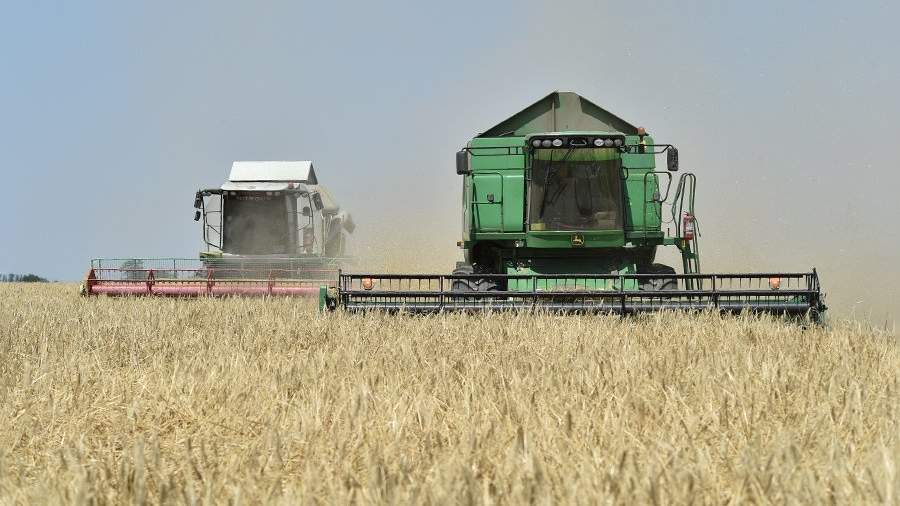
The rejection of Russian gas made Europe dependent on Russian fertilizers
By Anna Koroleva
The imports of nitrogen fertilizers to Germany from Russia over the past summer increased by a gigantic 334%, reaching about 167 thousand tons. And for the entire year before that, from July 2022 to June 2023, it amounted to only 38.5 thousand tons. These figures were reported by the German Agricultural Industry Association to the Berliner Zeitung newspaper.
The growth of Russia's share of total imports is also impressive: it rose from 5.6% to almost 18% in just a year. In particular, imports of carbamide, which has the highest nitrogen content, increased by 304% in the first half of 2023 compared to the same period in 2022.
According to market participants, this was the result of the refusal of Russian gas: the cost of producing fertilizers in Europe itself jumped by 150%. This was reported by the Ministry of Economy and Agriculture of Saxony-Anhalt, whose data was quoted by the German newspaper Bild in a statement. As a result, a number of enterprises have already stood up.
But this is not only a German problem. The largest companies in Norway, Germany, Poland, Lithuania, France, Great Britain and Hungary announced a decrease in output or the closure of factories, the Prime agency reports, citing data published in Europe.
More than 10% of the world's ammonia production capacities dropped out of the market. Thus, the market leader, the Norwegian Yara International, had to reduce production by 40%. The British CF Industries closed two factories, the German BASF turned off part of the capacity.
In general, Russia is now receiving a record income from the export of fertilizers. According to the Food and Agriculture Organization of the United Nations, in the first ten months of 2022, Russian fertilizer exports jumped 70% to $16.7 billion, Prime reports.
“This is due to high gas prices in Germany, and therefore, throughout Europe, the production of nitrogen fertilizers has become simply uncompetitively expensive, while prices for Russian fertilizers, on the contrary, have become more profitable,”the Deputy Chairman of the State Duma Committee on Ecology, Natural Resources and Environmental Protection confirmed to Expert. Wednesday Evgeny Markov. - The advantages for Russia are obvious. We are getting more and more market share, revenues are increasing.”
The price of a product is able to overcome any political obstacles, which is proved by the German import of Russian fertilizers, says Andrey Kochetkov, a Leading Analyst of the Global Research Department at Otkritie Investments. Fertilizer prices skyrocketed last year as supply chains collapsed, hurting rural producers almost all over the world.
In fact, instead of supplying raw materials in the form of gas, the Russian Federation began to increase sales of processed products, which can be considered positive, adds Andrey Kochetkov. And this situation, in his opinion, will continue for a long time, since Russia has the necessary raw material and energy base. But in Europe, the industry is in decline, as more expensive liquefied gas does not contribute to competitive production.
It is unlikely that the European Union understood, introducing economic sanctions against Russia, that the effect would be exactly the opposite, says Nikolai Pereslavsky, an employee of the CMS Institute's department of economic and financial research. In his opinion, the actions of Western politicians hit the world economy much more than banking and other crises. And the pragmatism of business will in any case prevail over the ambitions of politicians.
“It seems to me that the situation with the demand for nitrogen fertilizers in Europe fully reflects the situation in the chemicals market. Chemical industry giant BASF is closing its ammonia plant, unable to compete with Russian producers. I think that, despite the growing rhetoric about the ban on the import of fertilizers, this will not happen, European farmers are significantly consolidated and are unlikely to be led by politicians,” the expert says.
In turn, Russian manufacturers, adds Nikolai Pereslavsky, should not worry even if a ban is introduced. The loss of even 15% of the European market can be more than replaced by the countries of Southeast Asia, Africa, Latin America, where the need for fertilizers is growing every year.
This article originally appeared in Russian at expert.ru
